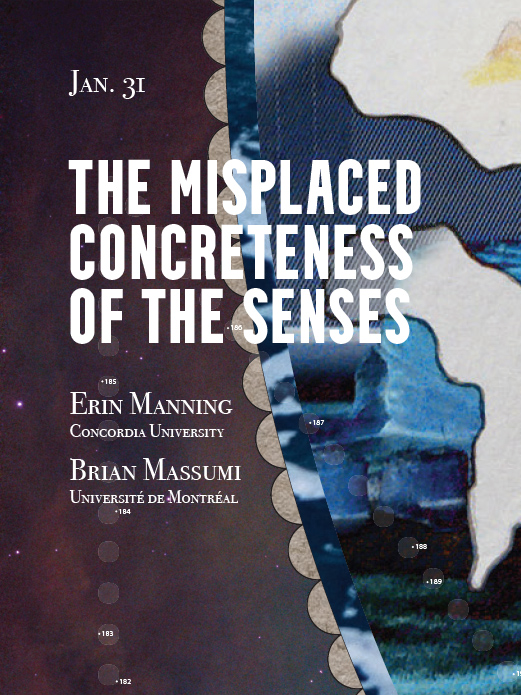Presented by the Department of Anthropology
The body's sensing is inseparable from processes of abstraction that extend life into incorporeal realms. From sonsensuous similarity to amodal perception, from reaching-toward to preacceleration, from distantism to synaesthesia, from autistic perception to lived abstraction, sensation and perception exceed the model of sense impression inherited from classical empiricism. This talk will draw on the radical empiricism of William James and the process philosophy of Alfred North Whitehead to explore the ways in which perception is already a mode of thought and thought is feeling.
The senses are a conundrum. Sensation is a process that is both biological and cultural, one that often evades analysis, while at the same time furnishing us with our objects of study. What, then, might an anthropology of (and beyond) the "sensorium" look like? The 2021-2022 Penn Anthropology Colloquium proposes to consider "sense" as a "boundary object" (Star and Griesemer 1989; Star 2010) within our four-field discipline, one that has been differentially reckoned with and reified by archaeological, biological, cultural, and linguistic anthropologists. Despite the different identities accrued by this object across anthropology, "sense" also invites conversations across these boundaries. Diverse anthropologists invoke a number of mediating "keywords" that relate to the study of sensuous or sensorial phenomena: affect and experience; body and mind; ecologies and environments; kinesthesia and multi-modality; materiality and mediation; information and infrastructure; among many others. "Sense" thus serves as a productive point of departure for examining wider comparative issues, beyond an explicit focus on "the sensorium" per se.
Accordingly, the 2021-2022 Penn Anthropology Colloquium investigates "sense" in its widest possible sense. We are particularly interested in developing lines of inquiry that attend to and interrogate the following questions:
- How can we understand sensation and perception as processes that are at once biological, experiential, and social?
- How (and to what end) are sensory continua or gradients segmented into discrete dimensions of socio-semiotic life? What do such segmentations reveal about the relations between sensorial and discursive semiosis?
- How can we engage critically with sense modalities beyond sight and hearing in fieldwork, analysis, and interpretation? How has our near total reliance on vision and sound shaped anthropology?
- From its origins in the Boasian critique of psychophysics in the late nineteenth century, to more recent decolonizing interventions, Americanist anthropology has long grappled with questions of sense and sensation. How might certain genealogies of sense and sensation illuminate new histories of anthropology as a discipline?
We invite you to probe these questions with us.



